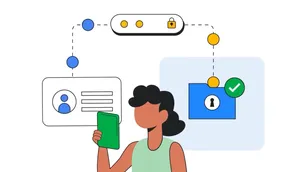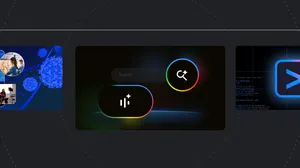Google for Chile: Supporting development through tech

Over the last decade, Chile has become known as one of the most connected countries in Latin America, and its population has been an early adopter of new technologies. But the country still has important challenges and opportunities to connect and bring all Chileans closer to technology that can make both their work and home lives easier.
Today we hosted our first Google for Chile, with a group of more than 300 people in Santiago. There, we discussed our ongoing commitment to the digital growth of Chile and Latin America, improving connectivity and creating a safer public cloud.
Connecting Chile's entrepreneurial force
In Chile and around the world, small and medium businesses increasingly need to be online in order to grow. Google My Business has become one of the best allies for entrepreneurs who want to see their businesses "on the map" and for their customers to find them. The number of verified companies on the platform in Chile has grown by 76% over the past year.
More efficient cities, in the cloud
In Chile, almost 50 percent of drivers use Waze to drive around all types of streets. That means users can serve as a kind of “sensor” in addition to stationary ones like radar and cameras, and cities can learn a lot from their drivers. Now, all the information from the Waze for Cities program will be stored for free for its members on Google Cloud, making it even easier for cities to see movement patterns and measure the effects of interventions. Currently, more than 190 partners across Latin America have joined the program.
Partners like the Subsecretaría de Transportes de Chile have been using Waze data to improve traffic. They monitor more than 400 road segments to determine the periods with the most traffic. This information is used to program traffic lights, and whenever patterns change (like when traffic piles up or there’s an accident on the road), they can adapt the lights accordingly.
Keeping Chilean children, teachers and parents safe online
In 2018, we launched Be Internet Awesome, which teaches children to be safe explorers of the online world. In Chile, we have been working with the Education Ministry so teachers and administrators can use our program’s tools. In the coming weeks, teachers using Be Internet Awesome will be able to find a new module—in Spanish—to teach students to think critically about the information they consume online, avoiding misinformation.
Privacy for all
New privacy tools are now officially available in Chile. People can now use Android phones as security keys, adding an extra layer of protection to their information. They can also check how data is being used in Maps, Search and the Assistant, by accessing the apps menu and choosing the option “Your data in …” There, you can review and delete your location activity in Maps or your search activity in Search. Soon, the same feature will be accessible on YouTube.
Auto-delete controls for Web and Apps Activity are also now available globally, allowing people to easily manage the amount of time their data is saved. Choose a limit—3 or 18 months—and anything older than that will be automatically deleted on an ongoing basis.
The cloud in Quilicura
The first and only Google data center in Latin America is located in Chile, in the city of Quilicura. Announced in 2012, the data center allows us to provide support to and guarantee the operation of all of our products, not just for Chile but for all of Latin America.
In September 2018, we announced the expansion of our data center, with an additional investment of US$140 million that will triple the size of the initial structure. And last April we announced the arrival of Curie on the coasts of the Valparaiso Region: Curie is the first submarine fiber optic cable to reach Chile in about 20 years.
How AI is transforming industries in Chile
At Google, we use artificial intelligence to make our products more useful, from email that is spam-free and easier to write to a digital assistant that understands you when you ask it questions.
Much of the progress made with AI is based on our open source machine learning platform, TensorFlow. In Chile, machine learning is opening up new opportunities in several industries like food, construction and astronomy. Local technology company Odd Industries found potential in using AI with camera footage in the construction sector, letting data reveal what humans can’t see. Artificial intelligence processes images from construction sites and converts them into concrete data, allowing companies to build responsibly and intelligently.
Working together with industry associations, academic institutions, government officials and our users, I’m excited to find new ways to use technology to help everyone succeed.






